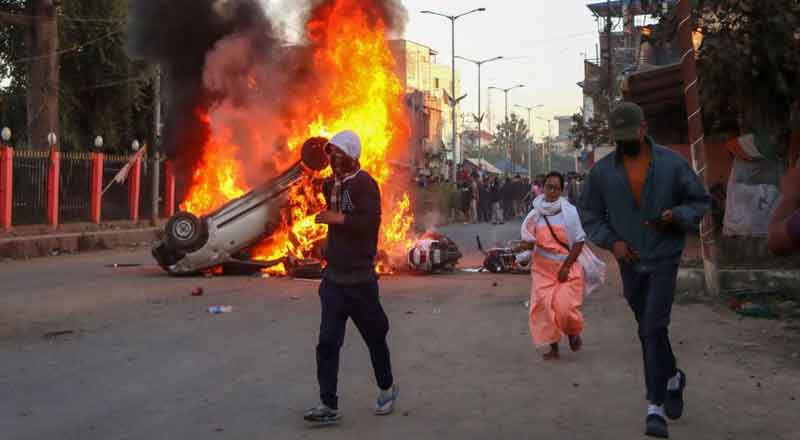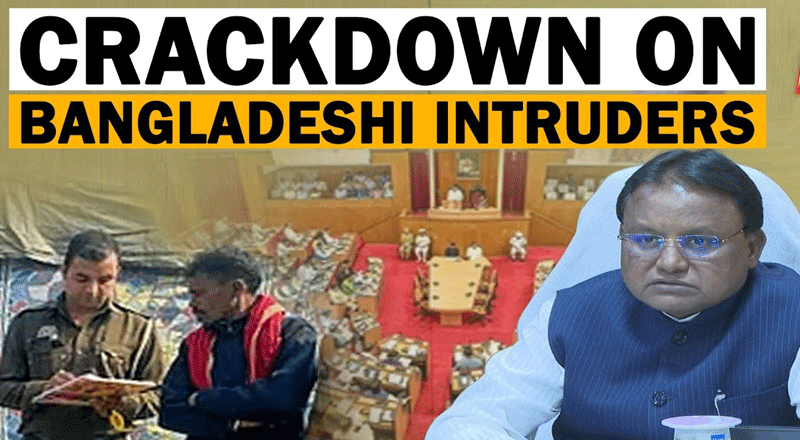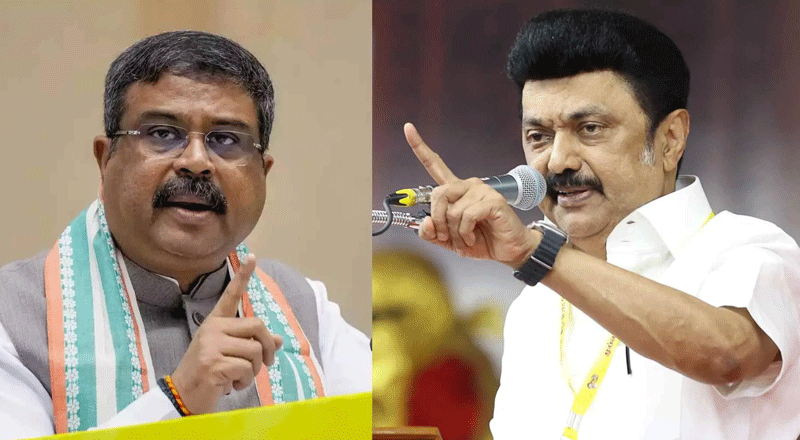The Spark That Ignited Manipur’s Unrest
The violence in Manipur, which erupted on May 3, 2023, has spiralled into a prolonged and devastating conflict, exposing deep ethnic and political divides in the state. Triggered by tensions between the Kuki and Meitei communities, the unrest has claimed lives, displaced thousands, and left a trail of destruction. The abduction and brutal killing of six innocent civilians, including women and children, have intensified calls for accountability and urgent action. The 19-month-long crisis remains unresolved, with growing criticism from key organizations like the Rashtriya Swayamsevak Sangh (RSS) and its student wing, the Akhil Bharatiya Vidyarthi Parishad (ABVP).
The RSS and ABVP Criticize State and Central Governments
The RSS and ABVP have expressed grave concerns over the ongoing violence and the government’s inability to restore peace. In a strongly worded statement, the RSS’s Manipur unit condemned the “inhuman, brutal, and merciless” killings, particularly the targeting of women and children. Such acts, the organization noted, violate basic humanitarian principles and tarnish the ethos of coexistence.
Similarly, the ABVP, echoing these sentiments, slammed both the Manipur state government and the central government for failing to ensure safety and normalcy. The ABVP’s statement highlighted failures in timely intervention that could have prevented the killings. It further condemned the destruction of properties belonging to democratically elected leaders, describing the actions as “deeply disturbing.”
Escalating Violence and its Toll
The violence in Manipur has seen a resurgence in recent weeks, with the death toll climbing to 20. The discovery of bodies near Jiribam, believed to include those of women and children abducted from a relief camp, has intensified tensions. Reports indicate that armed groups are continuing attacks, including burning houses and targeting police and CRPF personnel.
The ethnic conflict between the Kuki and Meitei communities has been the focal point of much of the violence. Decades of mistrust and unresolved grievances have created a volatile situation that has only worsened with inadequate state response. The violence has also exposed the fragility of governance, with seven MLAs from the National People’s Party (NPP) withdrawing support from the ruling BJP government, citing its failure to manage the crisis effectively.
Demands for Immediate Action
Both the RSS and ABVP have called for decisive and immediate measures to restore peace. The ABVP has demanded accountability for the government’s delayed response and urged protection for innocent civilians. The organization has also appealed to the public for patience and a collective stand against violence, emphasizing the need for unity to rebuild a harmonious Manipur.
The RSS, while condemning the violence, has urged the central and state governments to take “sincere steps” to resolve the crisis. The Sangh stressed the immense suffering of innocent people and underscored the urgency of ending the violence through effective measures.
Political Ramifications and Challenges
The political fallout of the Manipur violence has added another layer of complexity to the crisis. The withdrawal of support by NPP legislators highlights the erosion of trust in Chief Minister N. Biren Singh’s administration. This political instability further hampers efforts to address the conflict, as divisions within the government weaken its ability to take cohesive action.
Efforts to mediate between the warring communities have been largely unsuccessful. While sporadic attempts at dialogue have been made, the lack of sustained engagement and trust-building measures has allowed the violence to persist.
The Path to Reconciliation
The prolonged unrest in Manipur underscores the urgent need for a multi-pronged approach to address the crisis. Immediate steps must focus on restoring law and order, protecting vulnerable populations, and holding perpetrators accountable. At the same time, long-term strategies are essential to resolve the underlying ethnic tensions through dialogue, community engagement, and equitable development.
The criticism from organizations like the RSS and ABVP should serve as a wake-up call for the central and state governments to intensify their efforts. Without a sincere commitment to peace and justice, the suffering of Manipur’s people will continue, deepening the scars of this prolonged conflict. The path to reconciliation is challenging but essential for the future stability and unity of the state.
(With inputs from agencies)





